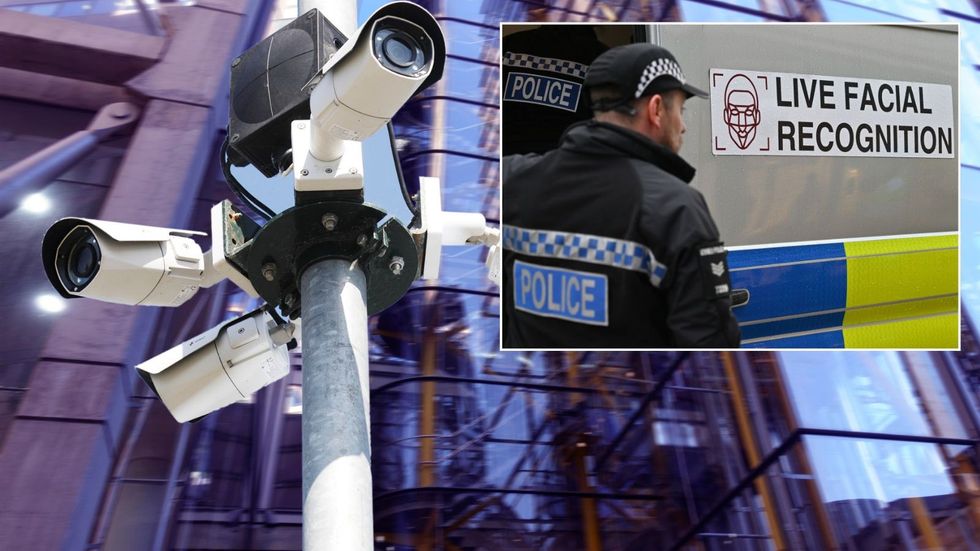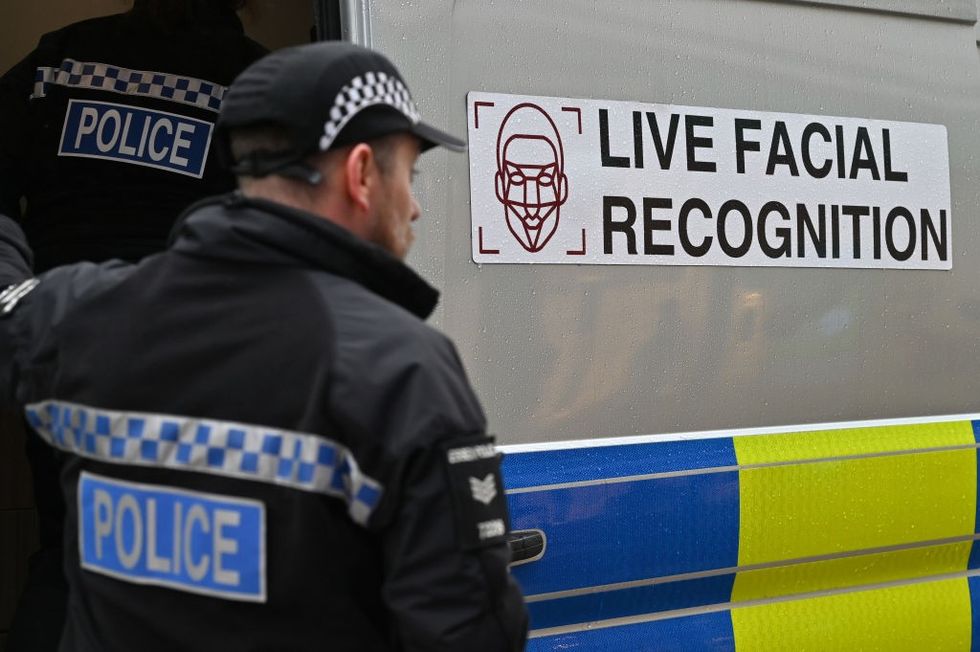Georgina Cutler
Guest Reporter
Police are being urged to use facial recognition in every criminal investigation, it has been revealed.
The independent police inspectorate has encouraged forces to "fully exploit" the technology.
Police are now conducting facial recognition searches on the public every two minutes, The Telegraph reports.
Last year officers ran more than a quarter of a million "retrospective" facial recognition searches in the UK.

The Metropolitan Police alone conducted 30,000 searches – more than ten times their figure for 2019.
This unprecedented expansion of the technology has prompted concerns from MPs, regulators and civil liberties campaigners.
Officers are encouraged to obtain pictures of targets – including witnesses and victims – from social media, doorbell footage and CCTV.
These images are then searched against the vast police national database (PND).
The technology, initially introduced to catch serious and violent offenders, is now most often used for low-level investigations.
Essex Police used facial recognition for 16 investigations later determined to be "non-crime".
LATEST DEVELOPMENTS:
The reliance on digital technology has increased as police forces cut officer numbers to reduce costs.
Chris Philp, the former policing minister, expressed concern about how the technology is being used.
"Reports of misuse are deeply concerning and it should certainly never be used for non-crime investigations," he said.
Madeleine Stone from Big Brother Watch called police use of facial recognition in non-crime investigations "deeply Orwellian".
Grant Shapps called for national guidance to prevent "misuse" by police.
The Information Commissioner's Office is investigating how police are using facial recognition software.
The ICO expressed concerns that "large amounts of sensitive personal data" may not be processed "responsibly" and "appropriately".
"People must be able to trust that technology is being used responsibly," an ICO spokesman said.

Prof Fraser Sampson, a former biometrics commissioner, warned that "unlimited expansion" of facial recognition could see it deployed to monitor protests and industrial disputes where no crime had been committed.
"Surveillance is no longer about where the police put their cameras; it is about what the state does with the images from everyone's cameras," he said.
Unlike live facial recognition, retrospective searches are invisible to citizens.
The Home Office described facial recognition as "an important tool in modern policing" that can identify offenders more quickly.
A spokesperson said they will "set out plans for the future use of facial recognition technology, alongside broader policing reforms, in the coming months".
All police forces must comply with existing legislation protecting privacy rights.
Find Out More...
The independent police inspectorate has encouraged forces to "fully exploit" the technology.
Police are now conducting facial recognition searches on the public every two minutes, The Telegraph reports.
Last year officers ran more than a quarter of a million "retrospective" facial recognition searches in the UK.

The Metropolitan Police alone conducted 30,000 searches – more than ten times their figure for 2019.
This unprecedented expansion of the technology has prompted concerns from MPs, regulators and civil liberties campaigners.
Officers are encouraged to obtain pictures of targets – including witnesses and victims – from social media, doorbell footage and CCTV.
These images are then searched against the vast police national database (PND).
The technology, initially introduced to catch serious and violent offenders, is now most often used for low-level investigations.
Essex Police used facial recognition for 16 investigations later determined to be "non-crime".
LATEST DEVELOPMENTS:
- Britain's first permanent facial recognition cameras installed to help hunt for criminals
- Free speech victory as man arrested after burning Koran dodges 'Orwellian' charges
- Allison Pearson's 'Orwellian' Essex Police complaint DISMISSED by National Police Chiefs' Council
The reliance on digital technology has increased as police forces cut officer numbers to reduce costs.
Chris Philp, the former policing minister, expressed concern about how the technology is being used.
"Reports of misuse are deeply concerning and it should certainly never be used for non-crime investigations," he said.
Madeleine Stone from Big Brother Watch called police use of facial recognition in non-crime investigations "deeply Orwellian".
Grant Shapps called for national guidance to prevent "misuse" by police.
The Information Commissioner's Office is investigating how police are using facial recognition software.
The ICO expressed concerns that "large amounts of sensitive personal data" may not be processed "responsibly" and "appropriately".
"People must be able to trust that technology is being used responsibly," an ICO spokesman said.

Prof Fraser Sampson, a former biometrics commissioner, warned that "unlimited expansion" of facial recognition could see it deployed to monitor protests and industrial disputes where no crime had been committed.
"Surveillance is no longer about where the police put their cameras; it is about what the state does with the images from everyone's cameras," he said.
Unlike live facial recognition, retrospective searches are invisible to citizens.
The Home Office described facial recognition as "an important tool in modern policing" that can identify offenders more quickly.
A spokesperson said they will "set out plans for the future use of facial recognition technology, alongside broader policing reforms, in the coming months".
All police forces must comply with existing legislation protecting privacy rights.
Find Out More...
